Boundary Commission: Belfast could lose a constituency
- Published
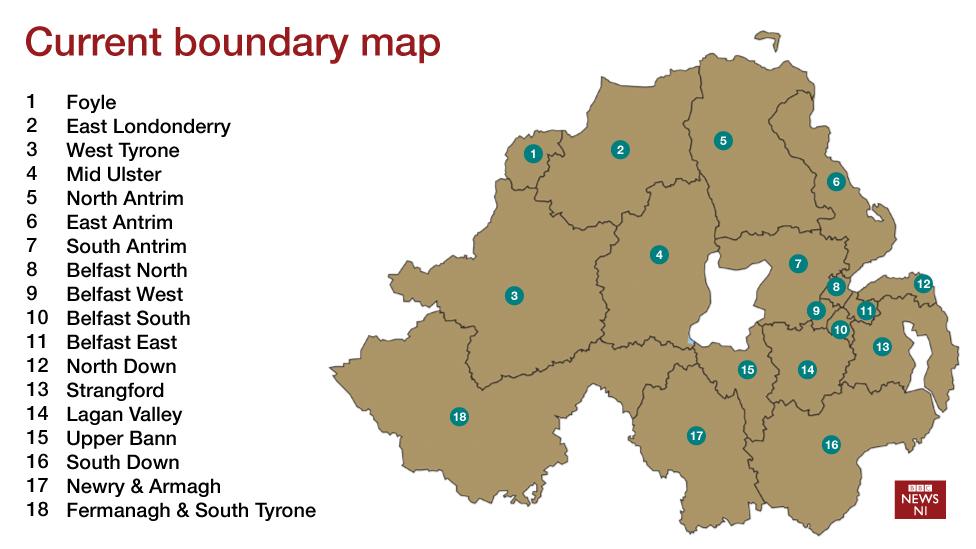
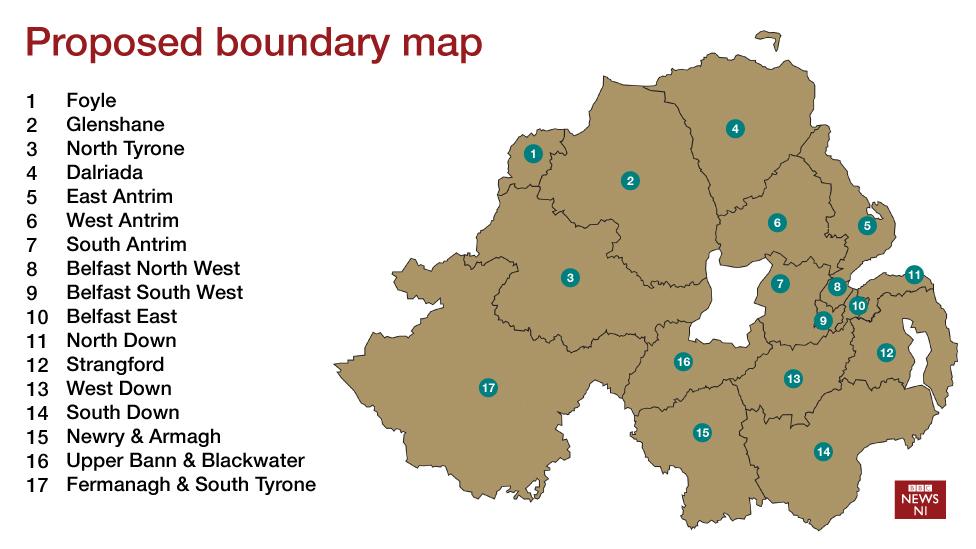
Belfast could lose one of its four parliamentary constituencies under new Boundary Commission proposals.
The number of seats in Northern Ireland would fall from 18 to 17, in what is being seen as an extensive redrawing of Northern Ireland's electoral map.
Outside Belfast, five constituencies would disappear and six new ones would be created.
The plans, which will go out for consultation, have had a mixed reaction from the political parties.
The proposals are part of a UK-wide process aimed at reducing the overall size of the House of Commons from 650 to 600 MPs.
The main changes proposed for Northern Ireland are:
In Belfast, only Belfast East will keep its name. Though the seat would lose areas like Dundonald, it would gain several wards from the existing South Belfast
A newly-created Belfast South West would amalgamate most of the existing South Belfast and about half of West Belfast
The rest of West Belfast would go into Belfast North West
Elsewhere, eight constituencies would continue with minimal boundary changes
Six new constituencies would be created, provisionally called Dalriada, Glenshane, North Tyrone, Upper Bann and Blackwater, West Antrim and West Down
Five names would disappear: Lagan Valley, East Londonderry, North Antrim, West Tyrone and Mid-Ulster
The DUP said the proposals were a "first draft" of a process that would not conclude until late 2018.
"As we know from all previous boundary revisions, there are always major changes as the process plays out," said a spokesman.

Analysis: Nicholas Whyte
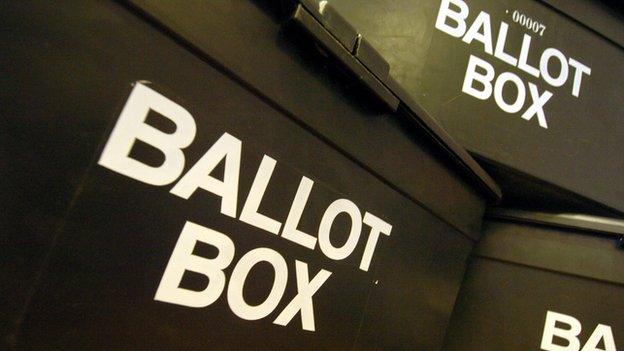
The changes are drastic.
Every constituency is changed, in some cases changed utterly, as Yeats might have put it.
For the assembly, these changes will be very disruptive - not so much in terms of overall party balance, which should still end up proportional thanks to the electoral system, but in terms of the links between MLAs and their voters.
Read more analysis here: Changes will cause more dismay than delight

Sinn Féin MLA Alex Maskey said the party had concerns about using the December 2015 electoral register as the basis for the re-drawing rather than census data.
"There are further concerns regarding what impact a Westminster-led Boundary Commission will have on assembly representation with a possibility of a reduction of constituencies to sixteen or less," he added.
UUP chairman Lord Empey said the proposals had "brought many surprises".
"The commission's own guidelines make clear that new proposals should respect geographical considerations, any local ties which could be broken and the existing shape of the 18 constituency boundaries.
"In the proposals as currently presented, Lisburn and Ballymena both lie at the periphery of their constituencies and cut off from their natural hinterlands - while the 10 major constituency alterations bear little resemblance to what went before."
The Boundary Commission for Northern Ireland is an independent public body responsible for reviewing Parliamentary constituency boundaries. There are separate commissions for England, Scotland and Wales.
Under the proposals, first outlined in 2011, England will have its number of seats reduced from 533 to 501; Wales from 40 to 29; and Scotland from 59 to 53.
- Published6 September 2016
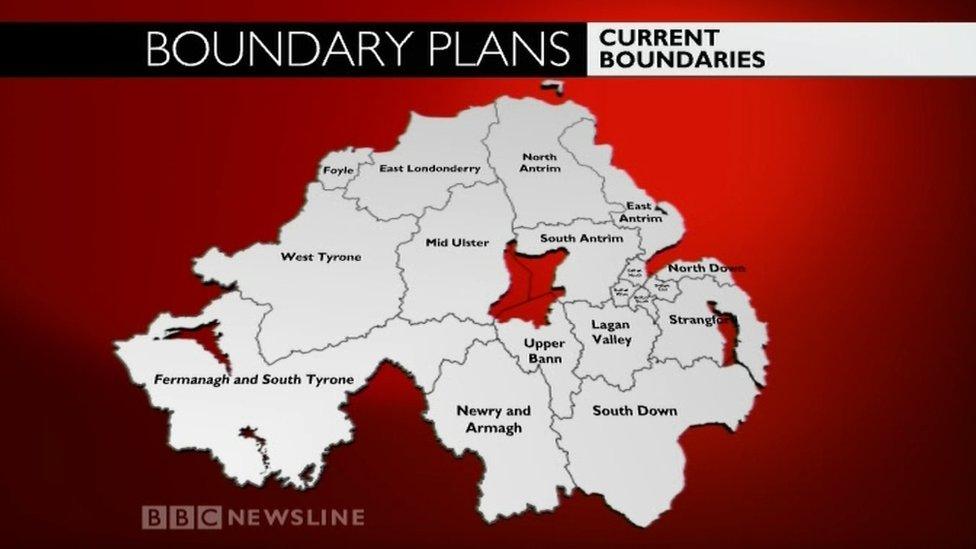
- Published25 February 2016
- Published24 February 2016
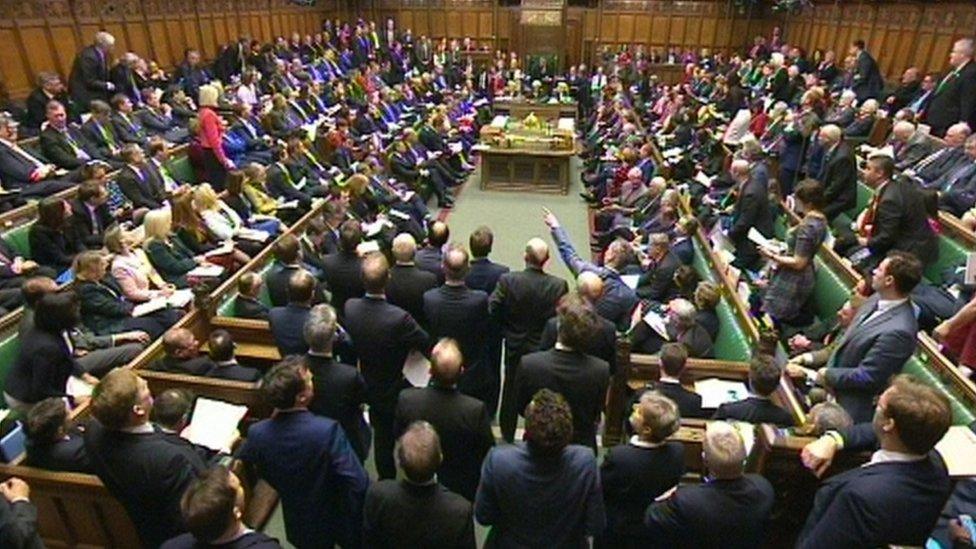
- Published24 February 2016